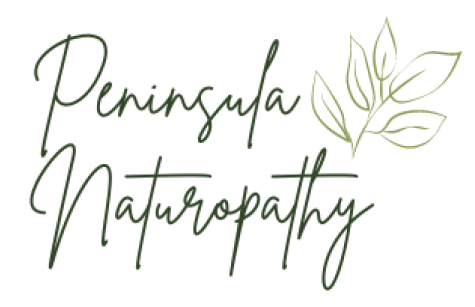
Post-viral syndrome (PVS) is a condition that can develop after a person has recovered from a viral infection. Despite the initial infection being resolved, individuals with PVS experience lingering symptoms that can significantly impact their quality of life. These symptoms can be diverse, affecting multiple systems in the body and varying in intensity and present similarly to Chronic Fatigue Syndrome. Traditional medicine often focuses on managing symptoms, but naturopathy takes a holistic view, aiming to strengthen the body’s innate healing capabilities.
What is Post-Viral Syndrome?
Post-viral syndrome, also known as post-viral fatigue syndrome or chronic post-viral syndrome, manifests when symptoms persist beyond the typical recovery period of a viral infection. Common phrases heard by sufferers include, “I just haven’t felt right since……” Commonly reported symptoms include:
- Persistent Fatigue: An overwhelming sense of tiredness that is not relieved by rest or sleep.
- Muscle and Joint Pain: Aching or soreness in muscles and joints.
- Cognitive Difficulties: Often referred to as “brain fog,” this includes problems with concentration, memory, and mental clarity.
- Sleep Disturbances: Trouble falling asleep, staying asleep, or experiencing non-restorative sleep.
- Headaches: Frequent or severe headaches that were not present before the viral infection.
- Digestive Issues: Such as nausea, diarrhoea, or irritable bowel syndrome (IBS).
Possible Causes and Contributing Factors
The exact cause of PVS is not well understood, but several factors are believed to contribute to its development:
- Immune System Dysregulation: After a viral infection, the immune system may remain in a heightened state of activation, causing ongoing inflammation and symptoms.
- Viral Persistence: Some theories suggest that remnants of the virus may linger in the body, continuing to provoke an immune response.
- Mitochondrial Dysfunction: The energy-producing structures within cells (mitochondria) might be impaired, leading to chronic fatigue.
- Autonomic Nervous System Imbalance: The autonomic nervous system, which controls involuntary bodily functions, might be disrupted, affecting various systems in the body.
Naturopathic Approaches to Managing Post-Viral Syndrome
Naturopathic medicine focuses on holistic and natural approaches to health. For those suffering from PVS, the goal is to support the body’s healing processes, reduce inflammation, and restore balance. Here are some naturopathic strategies:
1. Nutritional Support
- Anti-Inflammatory Diet: Emphasise whole foods, including plenty of fruits, vegetables, lean proteins, and healthy fats. Avoid processed foods, sugar, and inflammatory foods.
- Supplements: Vitamins and minerals like Vitamin D which is linked to lower rates of viral infection, B-complex, Vitamin C, Magnesium, Zinc for duration & severity of viral infection, and Omega-3 fatty acids can support the immune system and overall health by reducing inflammation and pain.
2. Herbal Medicine
- Adaptogens with immune boosting properties: Herbs like Ashwagandha, Astragalus, Schisandra and Eleuthero can help the body adapt to stress, improve energy levels and boost immune strength. Chronic stress can weaken the immune system and increase inflammation.
- Anti-Inflammatory Herbs: Turmeric, ginger, curcumin and Boswellia can help reduce inflammation and pain.
3. Lifestyle Modifications
- Rest and Sleep: Prioritise restful sleep and consider natural sleep aids like melatonin or valerian root if needed.
- Pacing and Activity Management: Gradually increase activity levels without overexertion to avoid worsening symptoms.
- Stress Management: Techniques such as yoga, meditation, and deep breathing exercises can help manage stress and improve overall well-being.
4. Hydration and Detoxification
- Stay Hydrated: Adequate hydration supports cellular function and detoxification processes. Aim for 8 glasses of water a day and incorporate nourishing herbal teas such as ginger and immune blends that include elderflower, yarrow, peppermint and echinacea.
- Detox Support: Natural detoxification methods, such as sauna therapy, dry brushing, and adequate fiber intake, can help eliminate toxins from the body.
5. Gut Health
- Probiotics and Prebiotics: Support a healthy gut microbiome, which plays a crucial role in immune function and overall health.
- Digestive Enzymes: These can aid digestion and nutrient absorption, especially if digestive issues are present.
FAQs
Q: How long does it take to recover from post-viral syndromes?
A: Recovery time varies from person to person. While some may feel better within weeks, others might take several months. Patience and consistent self-care are key.
Q: Can I use these remedies alongside conventional treatments?
A: Yes, many naturopathic remedies can complement conventional treatments. However, it’s crucial to consult with your healthcare provider to ensure there are no interactions.
Q: Are there any risks associated with herbal remedies?
A: While generally safe, some herbs can interact with medications or cause side effects. Always consult with a healthcare professional before starting any new herbal regimen.
Wrapping Up
Post-viral syndrome can be a challenging and frustrating condition, but a naturopathic approach offers a comprehensive plan to support recovery and improve quality of life. By focusing on nutrition, herbal medicine, lifestyle modifications, and holistic health principles, individuals with PVS can work towards regaining their health and vitality. Always consult with a qualified naturopathic practitioner to develop a personalised plan that addresses your specific needs and symptoms.
Remember, healing is a journey, and with the right support and strategies, it is possible to find relief and reclaim your health.


